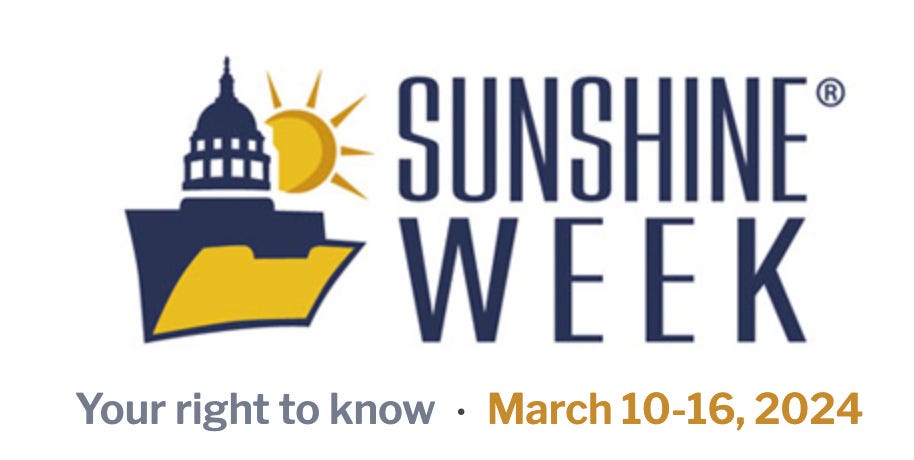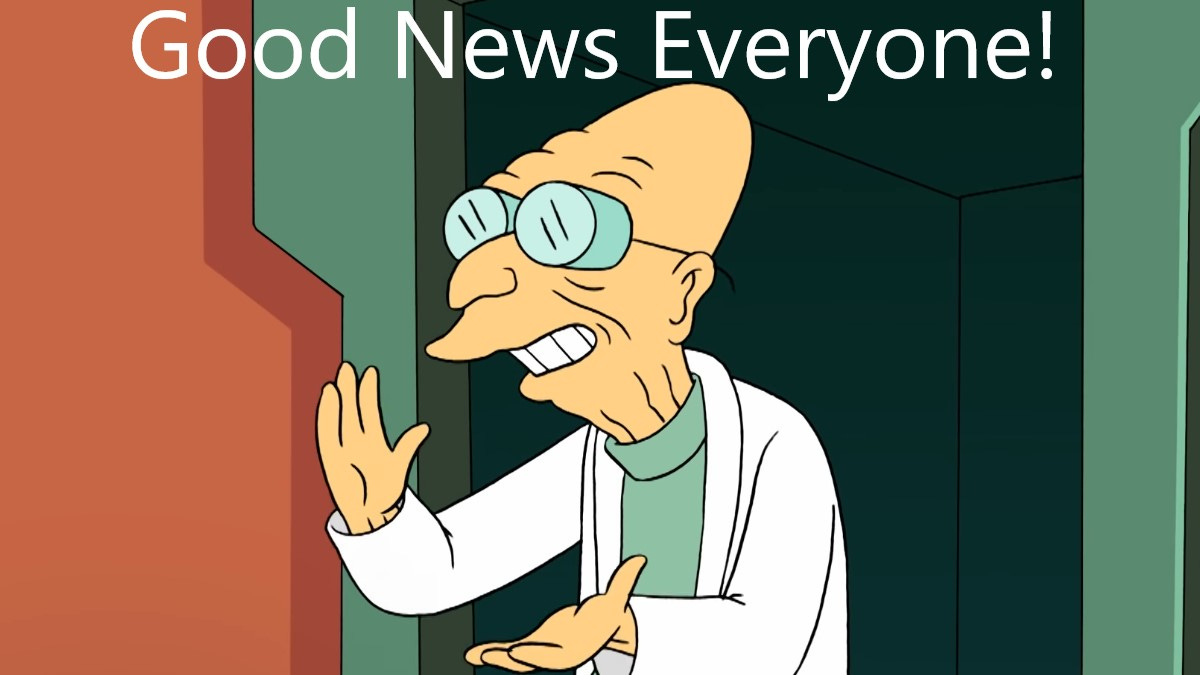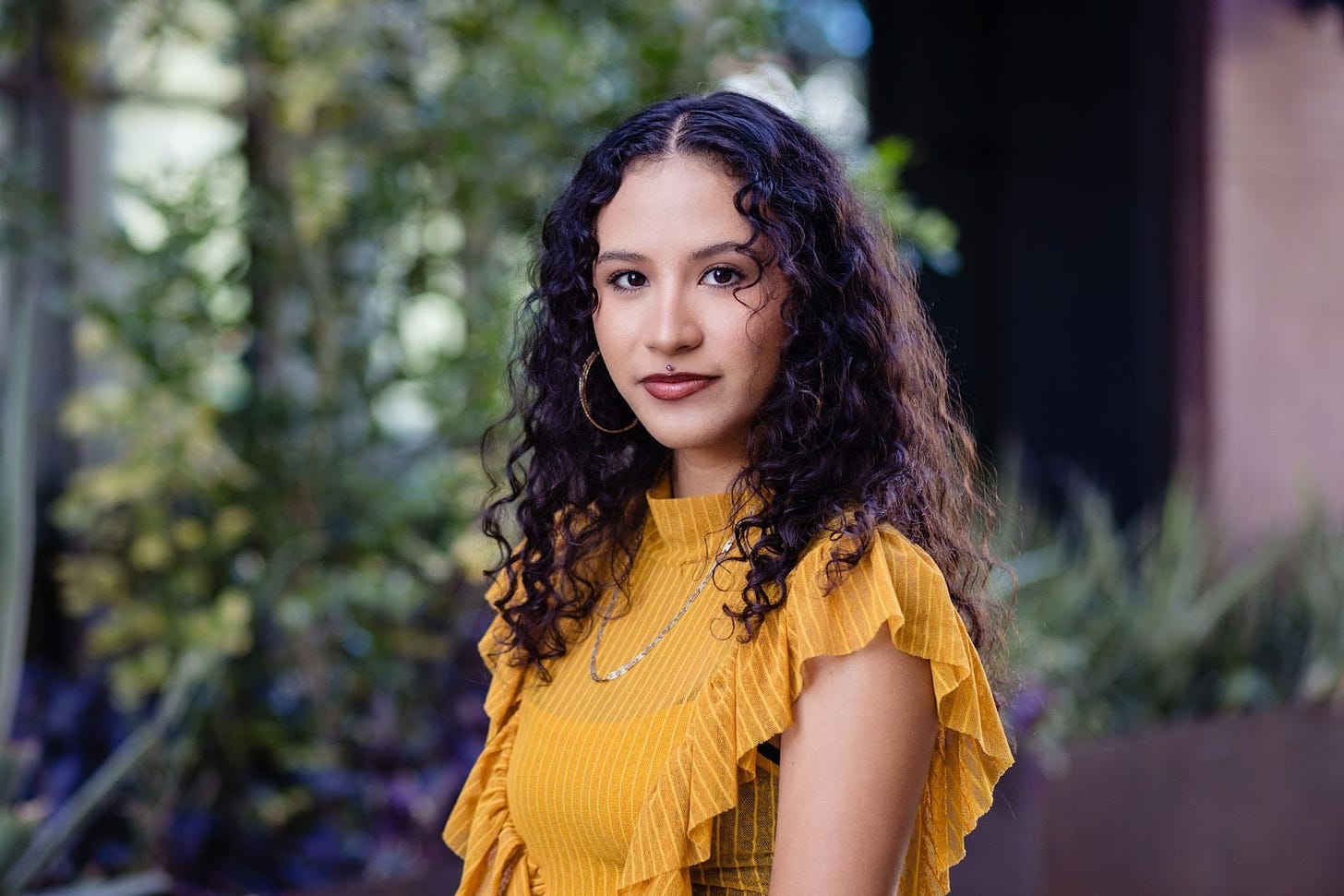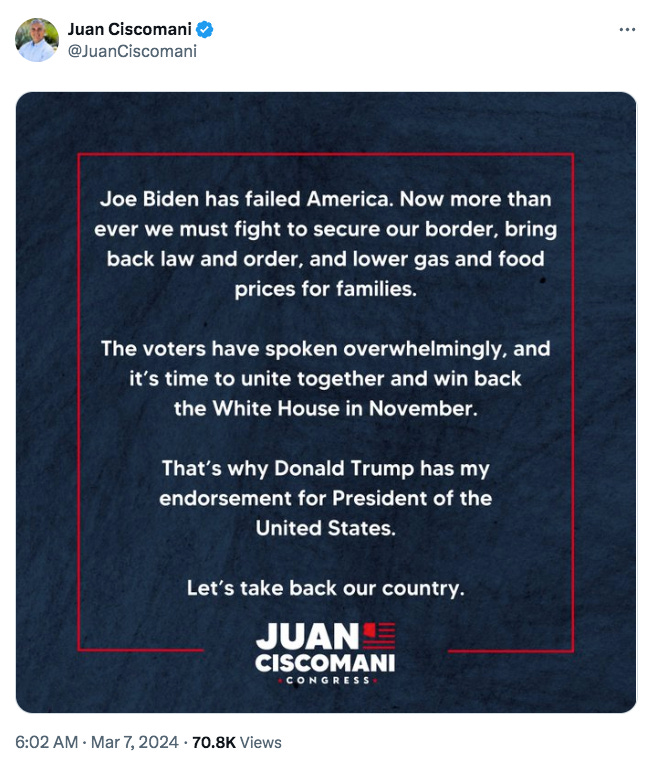The Daily Agenda: Here we grow!
We received our first grant and have hired a part-time reporter ... This means we can add some exciting new election coverage into the mix ... Hobbs faces tough choice on housing law.
If you’ve been reading the Tucson Agenda this week, you know that it’s Sunshine Week, a nonpartisan collaboration that shines a light on the importance of open government and public records. All week long, we’ve been sharing stories highlighting the importance of freedom of information laws.
We’ve written a lot lately about the University of Arizona’s financial crisis and conflicting information from school and state education officials. While the situation and changing details have been frustrating, it’s important to note that the only reason we know anything about what’s going on is because of open records laws.
If the UA were a private business, its financial affairs wouldn’t be subject to state oversight at this level or public records laws and our reporting on contracts, salaries and more wouldn’t be possible.
Open records laws have blown open the door on more than just this scandal at the UA. In 2017, Caitlin began looking into several allegations of sexual and domestic violence involving UA athletes and coaches. Her reporting on federal lawsuits against the UA painted a picture of campus-wide dysfunction and exposed how female students were put at risk because athletes went unchecked.
It’s scary to think about how much we wouldn’t know if it weren’t for public records laws and local reporters. Help us continue to do this important work and keep you informed on the issues that matter.
It’s only been eight months, but we think we’re already an impactful addition to the Southern Arizona news scene. Turns out, we’re not alone in our beliefs.
We’re proud to say that we’re among six recipients of the inaugural round of Local News Initiative of Southern Arizona grants. This is a big deal for the Tucson Agenda, since this funding will allow us to hire a part-time reporter to help increase the scope and impact of our election coverage.
We wrote about the Local News Initiative when they launched in the fall with the goal of raising $1 million over the next year to help support local, independently owned outlets. The initiative is housed within the Community Foundation for Southern Arizona and its advisory board includes people with decades of experience in the journalism industry and deep ties to Southern Arizona.
The initiative received 18 applications for the inaugural round of grants, selecting six outlets to receive a combined $225,000 in funding. We’re among good company in this crowd, with our fellow grantees including the Tucson Sentinel, Arizona Luminaria, Patagonia Regional Times, Nogales International and KAWC, a non-commercial, educational radio station based in Yuma.
For this round of funding, the selection committee specifically considered outlets’ capacity to deliver news that community members need and our ability to reach communities that are traditionally underrepresented in news coverage (more about that shortly.)
“The funding will support several different models for additional reporting, such as more traditional reporters, paid internships and the training of citizen journalists,” said Advisory Board Chair Nancy Sharkey, a former senior editor at The New York Times and retired journalism professor. “People in many cities lament the decline of local news; in Southern Arizona, we’ve started to do something about it.”
We love that the selection committee believes in the Agenda and the value of our work and we’re grateful to have a community foundation that understands the importance of local news. We can’t wait to take things to the next level.
This money we received means we’re officially sustainable through our first year, in addition to staffing up. And we’re proud to say that we’re able to pay our new reporter a competitive salary.
Speaking of our new reporter, we’ve already made a hire and are thrilled to have a familiar and talented reporter joining our ranks to cover elections and politics through the lens of the needs and questions of the Hispanic community.
Susan Barnett will be joining our staff in May. If her name sounds familiar, that’s because she used to write for La Estrella de Tucson, the Arizona Daily Star’s Spanish-language publication that was shuttered last spring during that devastating round of layoffs.
In the fall, Susan enrolled in the University of Arizona’s Bilingual Journalism Program, where she’s halfway towards earning her degree, and she also teaches Tucson’s first-ever roller skating dance class.
Here’s Susan to tell you a little bit about herself and why she wants to join our team:
“Our layoffs left a gaping hole in Tucson’s Spanish media. That’s why I’m excited to join the Tucson Agenda in covering the Latino community, especially during a critical election year. I’m here to dispel the ‘Latino Vote’ myth and to report on the diversity within the Latino political spectrum.“
Susan comes to us with experience in radio, broadcast, multimedia and covering several beats and specialities. And because she’s bilingual, we can also run her stories in Spanish.
As Susan said, this is yet another critical election year and the border is sure to be a hot button topic in national and state campaigns. We also have several local races this year for positions in the criminal justice system, which has historically and disproportionately been overrepresented by people of color.
We think it’s important to amplify the voices of people impacted by these policies and this rhetoric, and we’re happy to have Susan dive into these important areas of coverage.
Over the next two months, we’ll be launching another survey and hosting listening sessions so the community has a chance to help guide our election coverage. We’re all committed to providing election coverage that helps voters make informed decisions and Susan is eager to receive some guidance from the community about her coverage.
“I want to know what topics are important to the Latino community in this upcoming election, and how that will impact their vote and ultimately, the 2024 election results. I love to build, facilitate and be involved in various communities!”
Sorry to see him go: Now that Tucson City Councilman Steve Kozachik announced his retirement, Tucson Sentinel columnist Blake Morlock charts how his opinion of Kozachik changed over the years, from labeling him a “Tea Party extremist” in 2009, when Morlock worked for a Democratic candidate, to seeing Kozachik as a sensible, pragmatic voice on the council.
New advisors: As the University of Arizona mulls proposed changes to shared governance amid its financial crisis, UA President Robert C. Robbins announced the members of its new University Advisory Council in a news release. They include three members of the Faculty Senate, three professors who aren't on the Faculty Senate, a department head, six high-ranking staff members, and three students.
Dicey decision: All eyes are on Gov. Katie Hobbs as she mulls whether to veto a package of housing bills the Legislature passed last week, KJZZ’s Camryn Sanchez reports. The Arizona Starter Homes Act would strip away some of the rules municipalities like Tucson use to regulate housing, such as stopping certain new housing developments. Lawmakers have been under pressure to address the housing crisis and the bill got bipartisan support. But about half of Democratic lawmakers, as well as the League of Arizona Cities and Towns, aren't happy with it, which sets up a tricky political situation for the Democratic governor.
If at first you don’t succeed: State Sen. Justine Wadsack, a Tucson Republican, is trying again to get rid of Tucson’s hybrid election system, Capitol Media Services’ Howard Fischer reports. Sen. Priya Sundareshan, a Tucson Democrat, pushed back on the idea, saying voters in Tucson should be the ones to decide (and they have chosen several times already to keep the hybrid system). Still, Wadsack insisted Tucson voters want to make a change.
“You have areas that have people that vote that are not in the area of interest,” Wadsack said. “In my area in particular, South Tucson should not be voting for city council members who are in Tanque Verde valley or are in another area that have no interest in what’s happening in their backyard.”
Asylum funding: U.S. Rep. Raul Grijalva, a Tucson Democrat, co-wrote a letter asking for $3 billion to help communities like Tucson fund local efforts to support asylum seekers, Alisa Reznick of KJZZ’s Fronteras Desk reports. The 20 lawmakers want the Department of Homeland Security to restore the funding, which is set to expire at the end of the month, so cities and towns across the country don’t have to bear the brunt of “Congressional gridlock on immigration reform.”
Puppy mill no longer: Animal-rights advocates celebrated the closure of Pets at Park Place, KGUN's Andrew Christiansen reports. Gary Vella has protested the store for the past year, saying it's a "puppy mill" where dogs are bred en masse and crowded together. Vella's next project is to shut down Animal Kingdom in the Tucson Mall.
$1.2 million: The total amount of funding requested by the 18 applicants to the Local News Initiative of Southern Arizona.
Now is a great time to upgrade to a paid subscription to the Tucson Agenda. Help us continue to grow our ranks and provide you with the news you need.












And BTW Kozachik's employees never leave and love him like a family member. As do the people of Ward 6
You need to do a Feature on Steve Kozachik because he is literally a Model for how city council reps across the country can be the Leaders for Change From The Bottom Up. His Plastics Recycle efforts alone have put Tucson on the National news map. His diagnosis of problems at UA management were ahead of everyone. But the parks and water management and helping refugees and other lost souls in Ward 6 is beyond comparing. If he isn't the mayor of Tucson one day then we've done something Wrong here.